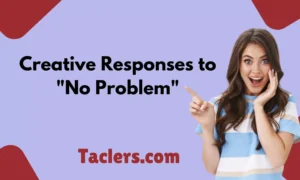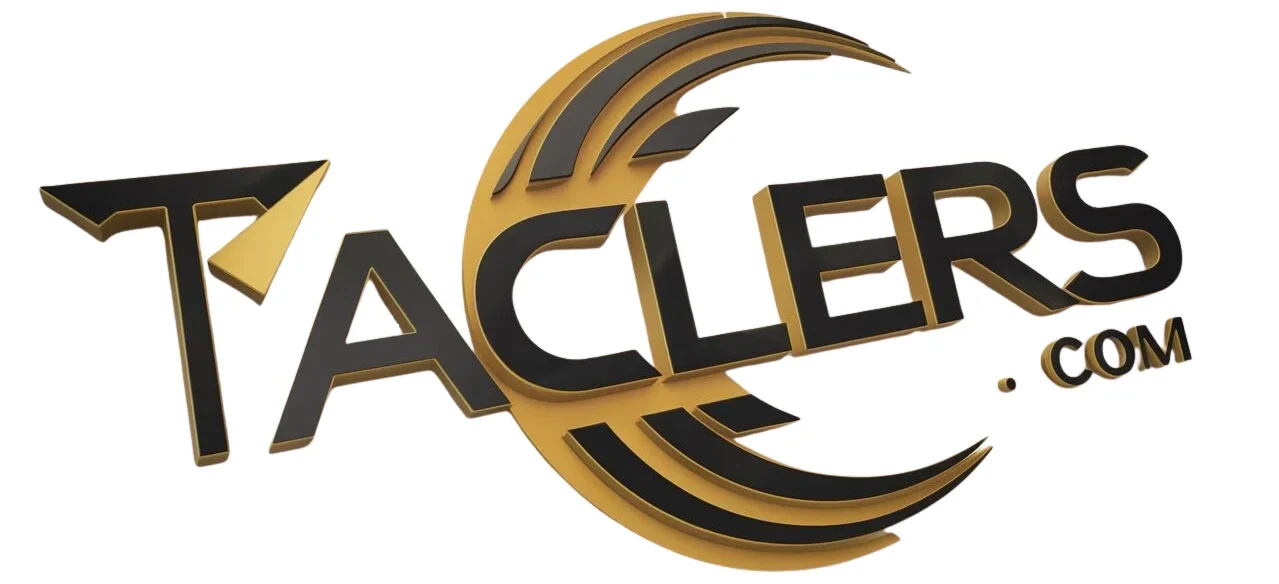Last updated on August 24th, 2024 at 09:36 am
In the world of witty comebacks and playful banter, the phrase “Takes one to know one” stands out as a classic retort. This familiar phrase often appears in everyday exchanges, especially when someone tries to counter an insult or playful jab. Its simplicity and directness have kept it in circulation for decades. However, if you’re looking to spice up your responses with a bit more flair and nostalgia, this guide will help you craft comebacks that blend classic charm with contemporary wit. Let’s dive into a range of nostalgic and clever responses that go beyond the usual.
Nostalgic Comebacks
Classic TV Show References
Nostalgia has a powerful effect on our sense of humor. Referencing beloved TV shows from our childhood can add a touch of warmth and humor to your comebacks. Here are some examples:
- “You’re such a Squidward. Maybe you should try being a little more SpongeBob.”
This comeback plays on the contrast between the grumpy Squidward and the ever-cheerful SpongeBob from SpongeBob SquarePants. It’s a humorous way to suggest that the other person could use a little more positivity. - “Wow, that comment was straight out of an episode of ‘The Twilight Zone.’”
The Twilight Zone is known for its surreal and unexpected twists. This reference implies that the other person’s comment is bizarre or outlandish.
These references work because they tap into shared cultural experiences, making the response both relatable and funny.
Cartoon Character Analogies
Cartoons have given us a wealth of colorful characters whose traits can be humorously applied to everyday situations. For example:
- “That’s rich coming from someone who’s practically the Grinch.”
This retort uses the Grinch from How the Grinch Stole Christmas to suggest that the person making the comment is a bit of a sourpuss. - “If I’m the Road Runner, then you must be Wile E. Coyote!”
Referencing the dynamic between the Road Runner and Wile E. Coyote from Looney Tunes highlights a playful rivalry, turning the insult into a joke about persistence and failure.
These analogies leverage well-known cartoon dynamics to add humor and context to your response.
Witty One-Liners to Shut Down the Insult

Clever Wordplay
Wordplay can turn a simple retort into a memorable comeback. Here are some examples:
- “Well, it’s a good thing we’re both experts, then.”
This line turns the insult around by agreeing with it in a sarcastic manner, suggesting that if both parties are what the other claims, they must be experts. - “If you’re an expert, I must be a master.”
This reply uses the same logic, but adds a layer of humor by elevating your status in response to the insult.
Clever wordplay adds a layer of sophistication to your comebacks, making them both entertaining and effective.
Quick-Witted Responses
Sometimes, the best way to handle an insult is with a sharp, quick-witted retort. For example:
- “Looks like we’re both professionals in this field!”
This response turns the insult into a compliment, suggesting that both parties are adept at dealing with such situations. - “If that’s the worst you’ve got, I’m doing pretty well.”
This comeback acknowledges the insult while downplaying its impact, showing confidence and humor.
Quick-witted responses can defuse tension and shift the conversation to a more positive tone.
Sarcastic Retorts
Dry Humor
Dry humor often involves a subtle, understated approach. Examples include:
- “Wow, that’s such an original thought. Did you come up with that all by yourself?”
This retort uses sarcasm to highlight the lack of originality in the other person’s comment. - “Is that supposed to be an insult? It’s more of a compliment, really.”
By flipping the script, this response makes the insult seem less impactful.
Dry humor can be effective because it subtly undermines the other person’s comment while maintaining a calm demeanor.
Over-the-Top Reactions
When sarcasm is taken to an exaggerated level, it can create a memorable and humorous response:
- “Oh, really? I’m just thrilled to receive such high praise from you.”
This response uses exaggerated enthusiasm to mock the insult, making it clear that it’s not taken seriously. - “If that’s the best you’ve got, I’m really impressed with your creativity.”
By overemphasizing the insult’s impact, this comeback turns it into a joke.
Exaggerated sarcasm can be both amusing and effective in defusing confrontations.
Turning the Tables
Redirecting the Insult
Sometimes, the best way to handle an insult is to turn it back on the insulter:
- “If I’m what you say I am, then what does that make you?”
This response shifts the focus from you to the other person, making them consider their own flaws. - “Interesting point. How about you tell me more about yourself instead?”
Redirecting the conversation can deflect the insult and put the insulter on the defensive.
Turning the tables can be a powerful way to regain control of the conversation and address the insult indirectly.
Self-Deprecation
Using self-deprecation can be a humorous way to acknowledge an insult while maintaining a positive outlook:
- “If being like me is your insult, I must be doing something right.”
This response turns the insult into a compliment, suggesting that being like you is not so bad. - “Well, if I’m the worst you can think of, I must be doing okay.”
By downplaying the insult, this retort shows confidence and a sense of humor.
Self-deprecation can help you stay grounded while turning the insult into a chance to showcase your resilience.
Pop Culture References
Movie Quotes
Pop culture references can add a layer of humor and relatability to your comebacks:
- “You’re a real master of the obvious, just like Professor Dumbledore said.”
Referencing Harry Potter adds a touch of literary flair to the response, making it both witty and familiar. - “That’s like something out of ‘The Matrix’—only less interesting.”
This quote uses a well-known movie to suggest that the comment is clichéd or unoriginal.
Movie quotes can enhance your comebacks by linking them to well-known cultural touchstones.
Music Lyrics
Lyrics from popular songs can also serve as effective comebacks:
- “Just like the song says, ‘You can’t always get what you want.’”
This lyric from The Rolling Stones adds a touch of philosophical humor to the conversation. - “Well, if you’re talking like that, ‘I guess you’re just a dreamer.’”
Using lyrics from classic songs can make your response both clever and nostalgic.
Music lyrics can resonate with listeners and add a fun twist to your comebacks.
Absurd Analogies
Outlandish Comparisons
Absurd analogies can make your comebacks stand out by highlighting the absurdity of the insult:
- “Saying that is like complaining about the color of the sky when you’re underwater.”
This analogy illustrates how irrelevant the insult is in a humorous way. - “That’s like criticizing a fish for not flying.”
Using over-the-top comparisons can make the insult seem less serious and more laughable.
Absurd analogies use exaggerated comparisons to highlight the flaws in the insult.
Hyperbolic Similes
Hyperbolic similes can add a touch of humor by making extreme comparisons:
- “That’s like calling a fish slow for not winning a race on land.”
This simile exaggerates the situation to show how unrealistic the insult is. - “It’s as if you’re mad that a cloud isn’t a mountain.”
Using hyperbole can emphasize the silliness of the comment and deflect the insult.
Hyperbolic similes are effective for turning insults into amusing exaggerations.
The High Road – Mature Responses
Acknowledging and Moving On
Taking the high road involves acknowledging the comment and then shifting the focus away:
- “I understand where you’re coming from, but let’s agree to disagree.”
This response shows maturity by accepting the difference in opinion and moving forward. - “It sounds like you have strong feelings about this. Let’s talk about something else.”
Redirecting the conversation can defuse tension and show respect for the other person’s perspective.
Mature responses can help maintain composure and keep conversations productive.
Empathetic Responses
Showing empathy can be a powerful way to handle insults:
- “It sounds like you’re having a tough day. Let’s talk about something else.”
This response acknowledges the other person’s feelings and shifts the conversation to a more positive topic. - “I see you’re upset. How about we discuss something more pleasant?”
By addressing the emotional state, you can diffuse the situation and offer a chance for a more constructive dialogue.
Empathetic responses show understanding and can help to de-escalate conflicts.
The Final Word
Handling insults with clever comebacks or mature responses can turn a potentially negative situation into a chance for humor and growth. Whether you choose to draw on nostalgic references, employ witty wordplay, or take the high road, the key is to stay composed and use your responses to maintain a positive atmosphere. By blending humor with respect, you can effectively address insults while keeping the conversation engaging and enjoyable.

Ethan Richards, a distinguished writer at Taclers.com, excels in blending sharp insights with engaging storytelling. His background in sociology adds depth to his analysis of human reactions, making his articles both thought-provoking and entertaining. Explore the world of reactions with Ethan and see familiar moments in a whole new light.










